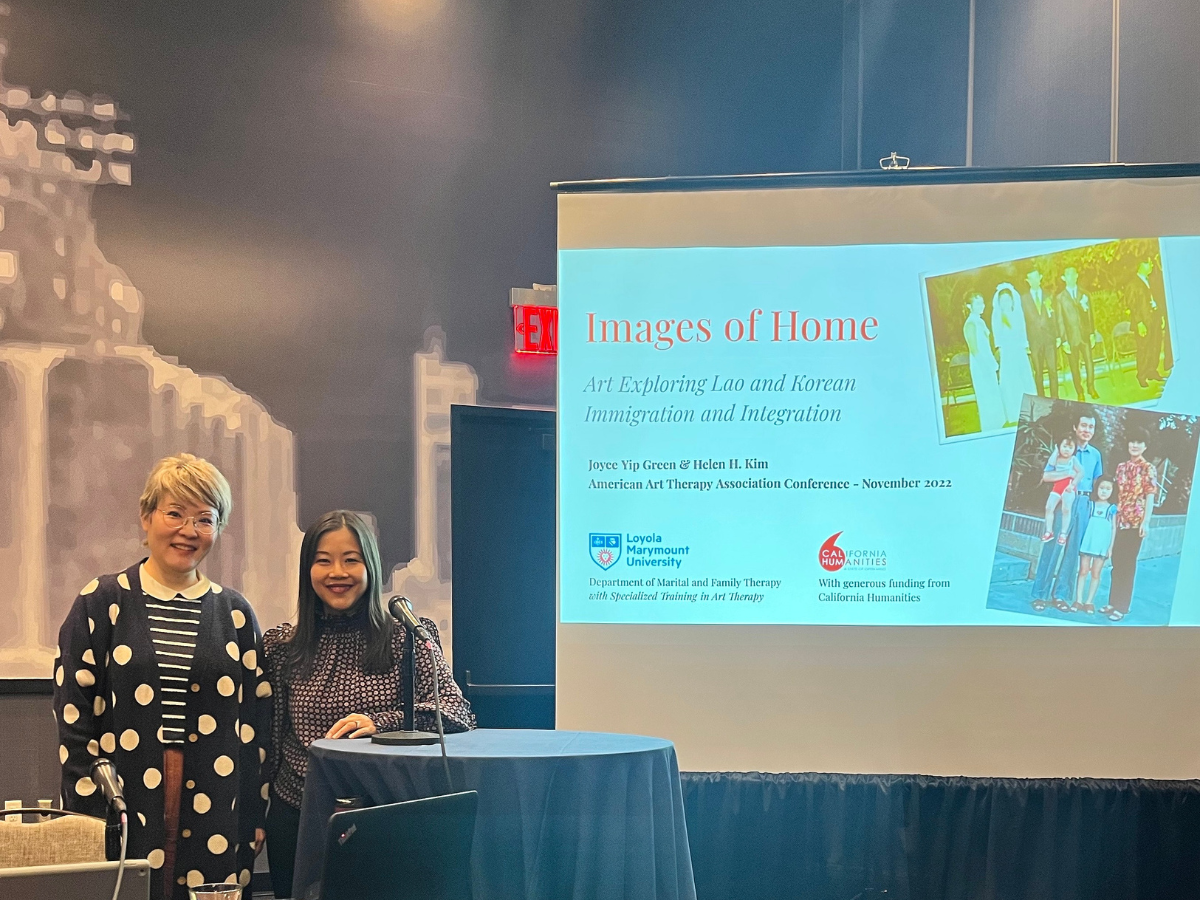
Joyce Yip Green, assistant professor of Marital and Family Therapy/Art Therapy, has been awarded a Humanities for All Project grant for her project titled “(re)Location: The Lao/Korean Acculturation Project” by California Humanities.
In partnership with multimedia artist Helen H. Kim, Green seeks to explore Korean and Lao immigrants’ and refugees’ immigration and acculturation experiences in California through an interactive virtual exhibition and related physical exhibits and public programs.
“Helen and I have known each other a long time, and we have discussed our shared identity of being 1.5 generation Americans,” said Green, meaning they immigrated to America as children or infants, like so many others, and are between first- and second-generation Americans. “We have been talking a lot about the experience of living as immigrants in this country, and as our parents are getting old we are realizing so much more about the untold stories that they hold on to, and piecing together a little bit about the history of how our parents came over to this country.”
Green, who is a Laotian American, and Kim, who is a Korean American, turned to art therapy and art-based research approaches to investigate the stories of immigrants who came from war-torn countries because, as Green says, “spoken language is sometimes limiting.”
“Through the use of art and art expression we can help facilitate greater self-discovery and discussion about those really difficult stories or experiences that a lot of immigrants have,” said Green.
In the years following the Korean and Vietnam Wars, the U.S. saw an influx of immigrants and refugees from South Korea, Laos, Cambodia, and Vietnam due to the implementation of the Immigration and Nationality Act of 1965, the Indochina Migration and Refugee Assistance Act of 1975, and the Refugee Act of 1980. The project will shed light on the experiences of first-generation immigrants from these communities to provide an entryway for younger generations of Korean and Lao Americans to a better understanding of their history while creating an opportunity for the public to explore the two communities’ cross-cultural similarities and differences.
Guests from the Lao and Korean communities will participate in a panel discussion and public storytelling event to explore the themes in the exhibition and contribute to the store of knowledge the project is building. Eventually, through access provided by web technology, the broader California public will be invited to explore a library of firsthand stories and a gallery of artwork created by these immigrants, as well as to participate in educational, humanities-based activities.
“We want to share this with the larger Asian American community so that they can see stories that reflect their experiences, but also so they can reflect on how the stories may be different,” said Kim. “We want the presentation to be a prompt for Californians in general to start asking questions about who they are, what is their rootedness, what is their family history.”
Green and Kim recently presented the (re)Location project at the national American Art Therapy Conference in Minneapolis, and will host their first public event in summer 2023.



